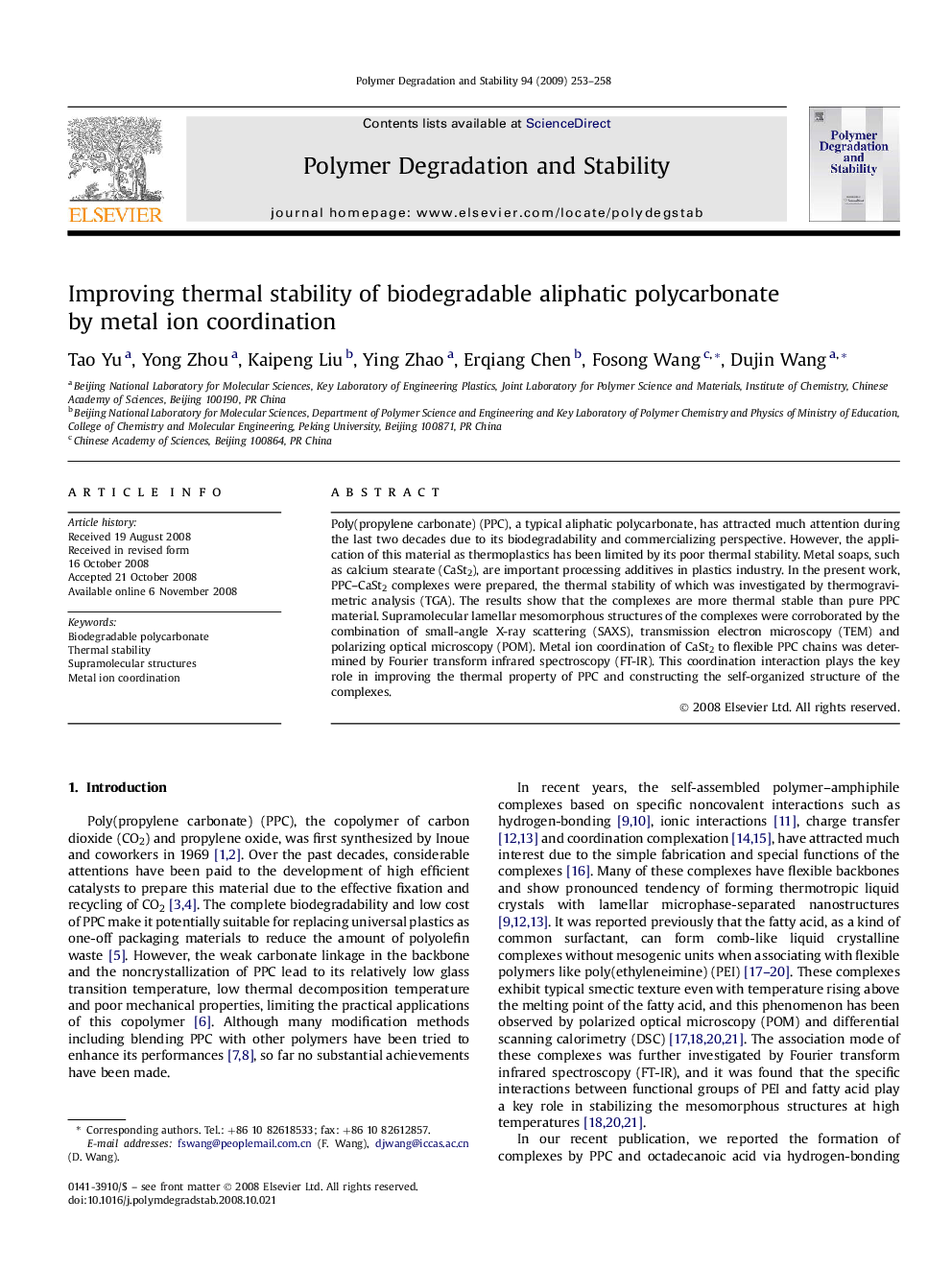| Article ID | Journal | Published Year | Pages | File Type |
|---|---|---|---|---|
| 5203825 | Polymer Degradation and Stability | 2009 | 6 Pages |
Abstract
Poly(propylene carbonate) (PPC), a typical aliphatic polycarbonate, has attracted much attention during the last two decades due to its biodegradability and commercializing perspective. However, the application of this material as thermoplastics has been limited by its poor thermal stability. Metal soaps, such as calcium stearate (CaSt2), are important processing additives in plastics industry. In the present work, PPC-CaSt2 complexes were prepared, the thermal stability of which was investigated by thermogravimetric analysis (TGA). The results show that the complexes are more thermal stable than pure PPC material. Supramolecular lamellar mesomorphous structures of the complexes were corroborated by the combination of small-angle X-ray scattering (SAXS), transmission electron microscopy (TEM) and polarizing optical microscopy (POM). Metal ion coordination of CaSt2 to flexible PPC chains was determined by Fourier transform infrared spectroscopy (FT-IR). This coordination interaction plays the key role in improving the thermal property of PPC and constructing the self-organized structure of the complexes.
Related Topics
Physical Sciences and Engineering
Chemistry
Organic Chemistry
Authors
Tao Yu, Yong Zhou, Kaipeng Liu, Ying Zhao, Erqiang Chen, Fosong Wang, Dujin Wang,
